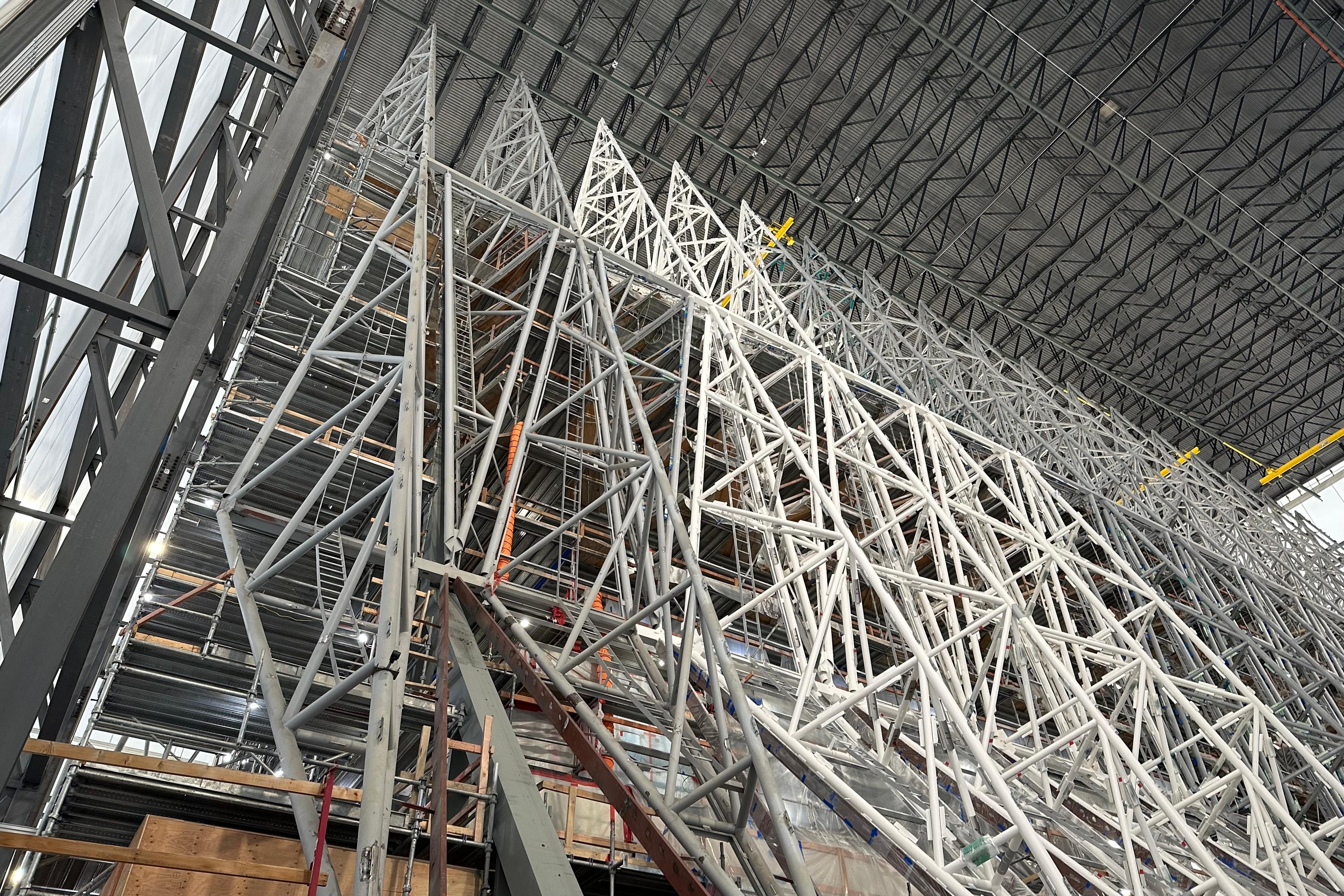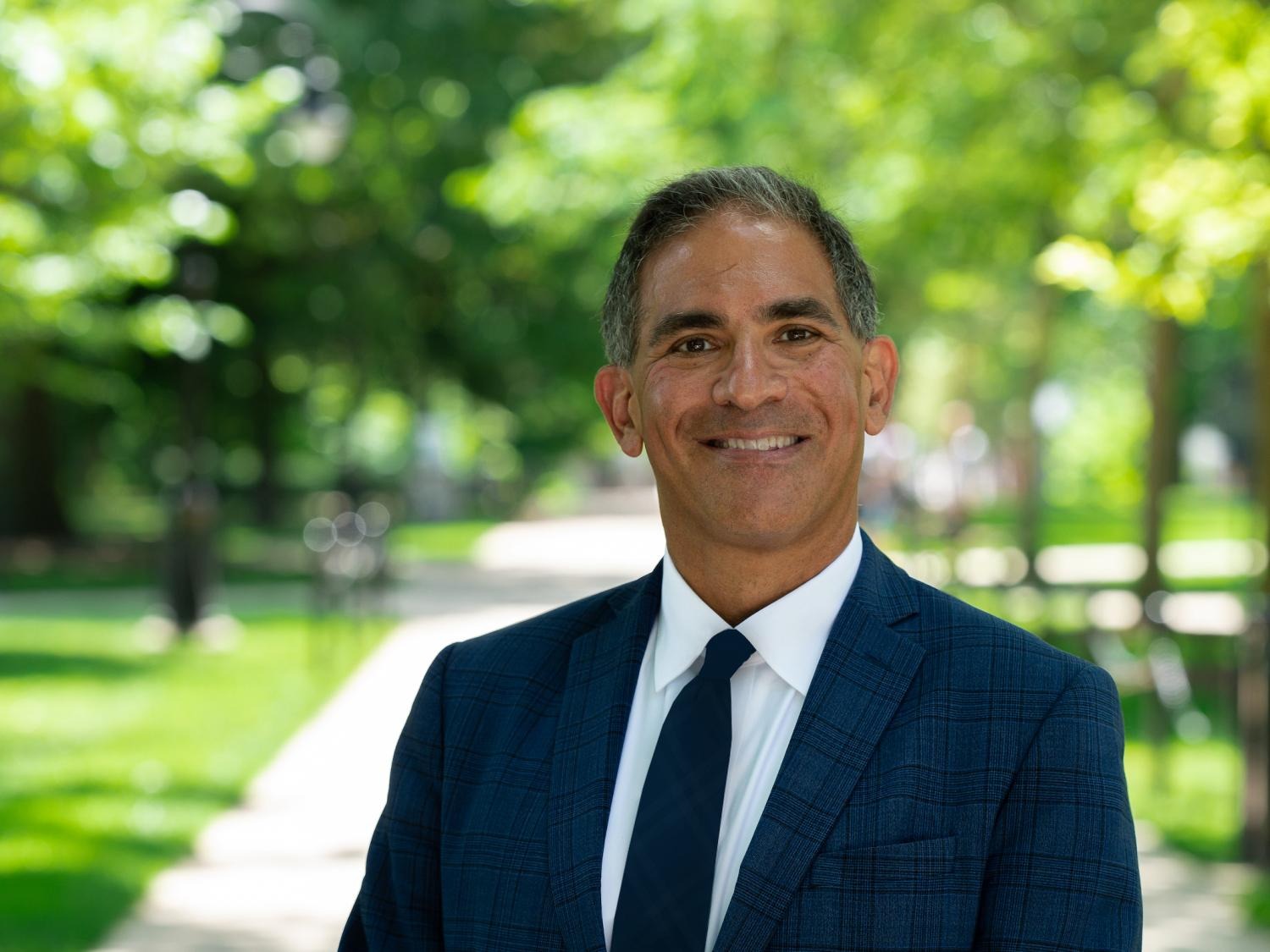To explain why folks in rural Delta County, Colo. are feeling a lot less anxious than they were a couple years ago, consider the story of Johnny Olivas.
He's digging a line down a steep, dirt driveway, where he'll lay fiber optic cable into a home. His company, Lightworks Fiber, has begun installing badly needed broadband to this remote valley of deserts and aspen-cloaked mesas.
"I didn't know anything about fiber optic, but you catch on pretty quick," Olivas says during a break. "It's a hell of a lot easier than coal mining."
Like a lot of his family and old high school buddies, Olivas used to be a coal miner at one of the mines in the mountains of western Colorado that once employed thousands of workers with full benefits.
Olivas, who worked underground for about a decade, doesn't miss it though.
"It's so up and down," he says. "I don't want to go through that experience again where I get laid off and I'm trying to figure out what I'm gonna do next."
A tale of transformation
Olivas is one of about 800 coal miners in the North Fork Valley who found themselves unemployed over a period between 2014 to 2016. Folks now refer to it as "the shock." Two of the county's three coal mines shut down, and the valley's tight knit little towns with folksy names — Cedaredge, Paonia, Hotchkiss — faced the prospect of shuttered businesses and consolidating schools.
When Teresa Neal and her husband heard about the mass layoffs, they saw an opportunity.
"We were like, we've got to do something; there's got to be something we can do," Neal says.
Their then fledgling company, Lightworks, began bidding — and winning — contracts offered by the local electric utility that was looking to expand broadband to thousands of homes and businesses. Coal was going away and broadband was key. After all, how does a small town compete in today's economy without good access to the internet?
According to an NPR poll released this week with the Robert Wood Johnson Foundation and the Harvard T.H. Chan School of Public Health, residents of rural communities say that having access to training opportunities is one key to finding good jobs close to home. (Can't see the graphic? Click here)
Rural Americans have also long complained of feeling left behind when compared to most cities where internet speeds are better and access tends to be easier. So, one weekend, the Neals took their barn and literally transformed it into a makeshift training facility for former coal miners. They started teaching them about fiber, Neal says — how it worked and, more importantly, how to splice it.
They've retrained and hired more than 80 miners so far. All of this was personal.
"I didn't want my girlfriends leaving," Neal says. "My kids didn't want their friends to leave."
This was a common theme in our poll. One of the things people value most about small towns is having their close friends and family nearby. Parents want their kids to be able to stay and start their families too, instead of having to move away for better opportunities.
Don't see the graphic above? Click here.
'In spite' of the coal mines
Delta County is roughly the size of Rhode Island but with a population of just under 30,000 people. Most people know their neighbors. They don't always lock their doors and they like that their kids can ride bikes or motorcycles without worrying the way they might in a congested city.
Maybe the jobs from the new fiber-optic boom don't pay as well as the old coal jobs. But they are still good jobs with benefits and they're keeping people in Delta County, or in some cases allowing them to move there or move back.
While the NPR poll found that respondents overwhelmingly said they were concerned about local economic problems, many also said they felt better off than their parents and had a positive outlook on the future.
For the first time in years, Delta County's population isn't declining. Lately, people are also moving to the county from urban areas — especially Denver or California — drawn by its small-town lifestyle. Now that the internet is improving, they can also work remotely.
"There's a little bit more room to take a risk in a rural community," says Stacey Voigt, executive director of Delta County Economic Development.
DCED, a nonprofit, is trying to lure more entrepreneurs like Lightworks to the valley. They're also promoting the county's burgeoning organic farm and food industries, among other businesses. Voigt's family relocated from the Denver area last fall.
"People are excited to talk about what's next," she says. "It's the 'moving on' and being successful — not because the coal mines closed, but in spite of them closing."
Hometown pride
You hear this a lot in Delta County which, make no mistake, is still solidly conservative. The county hasn't voted for a Democrat in a presidential election since 1964. Folks are proud of their natural resource heritage and agricultural roots. But you also see a big disconnect between what politicians are saying nationally about bringing coal jobs back to rural America and what's actually happening here on the ground.
People have known for some time that coal is probably not coming back to Delta County. For one thing, most all of the easy and cheap stuff has been mined.
That's according to retired miner Rob Clements, who stands with his daughter Michelle on a drizzly morning, on the back porch at their place outside Hotchkiss.
"Right up that valley — I worked there for almost 30 years," Rob says, pointing east up the river-cut valley toward the underground mines. The north fork of the Gunnison River is flowing muddy after some badly needed rain. The views are stunning, making it easy to see how Delta County may have more going for it than some other, less picturesque, rural areas.
"For the local people, the miners and their kids, the fiber optics has pretty much saved this valley," Rob says.
His daughter Michelle had been living in Salt Lake City, a five-hour drive away. She'd had to move there to keep a job, working in human resources for a coal company. Some of their neighbors had to move five hours in the other direction for jobs in the Denver area.
But this past spring, Michelle felt like she'd hit the jackpot. She heard Lightworks was hiring. She applied right away and was hired on to do work in HR soon after. She and her father are both thrilled she was able to move home.
"I have a lot of pride in where I grew up," Michelle says. "When I start a family I want my family to have that same experience, too; it's an awesome place to grow up."
Her company currently has 40 more open positions. And there are for-hire signs posted around town. The Clements say that hasn't happened in years.
9(MDEyMDcxNjYwMDEzNzc2MTQzNDNiY2I3ZA004))








